
The 8 Best Nonfiction Books of 2023 That You Need To Read in 2024
Nonfiction has become one of my absolute favorite categories to read in, especially in the last few years, so I am excited to highlight the best nonfiction of 2023. It has been a good year for expanding one’s reading horizons, and like many other readers, I like to review the “best of” lists on an annual basis. While I never actually read every single book I find on these lists, reading about them gives me that vicarious thrill I’m seeking and helps me narrow down the ideal choices to add to my ridiculously long TBR.
For my own list full of topics I love, I found that there were a number of academics represented, and they fell into two disciplines: sociology and anthropology. Since both disciplines care greatly about what makes us human and how human beings form communities and societies together, this came as no surprise to me. I am regularly looking for reassurance that humanity has a future together and that our collective future could be, well, more humane. Given the way things are going in the world at the moment, I am going to cling to that hope for dear life. If you could use some reassurance along with a healthy dose of reality, too, then take a look at eight of the best nonfiction books of 2023 that you need to add to your 2024 TBR.
Also, some news! If you’re into self-improvement, cooking, personal finance, and the bouquet of genres we think of as “lifestyle nonfiction,” we have a brand new newsletter we think you’ll love! Better Living Through Books, written by Rebecca Schinsky, is a resource for reading material that helps you live the life you want. Subscribe to Better Living Through Books here!
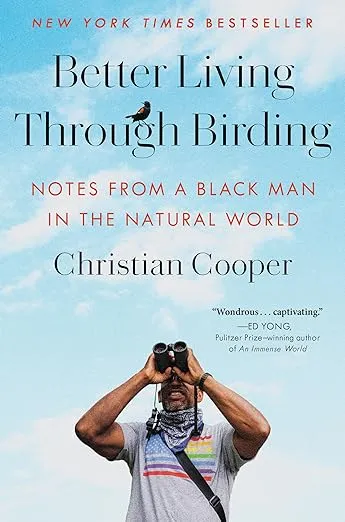
Better Living Through Birding: Notes from a Black Man in the Natural World by Christian Cooper
This was on many “best of” lists in 2023, including Liberty Harding’s ten best nonfiction books you (maybe) missed — and rightly so. Cooper is a gifted writer who takes the reader along for a very engaging ride on topics I would have never thought I would be interested in. Reading about his love of birding made me think of Boys in the Boat, another book that explained a past time I did not know I needed to read about until I did. It’s that kind of fascinating where you think, “Huh, I am so glad I saw this book mentioned everywhere and finally succumbed to the peer pressure.”
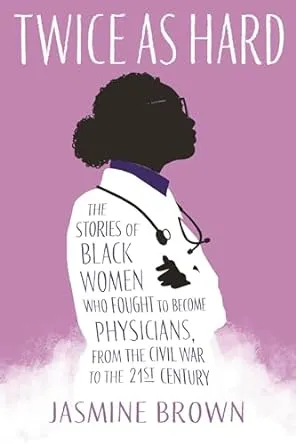
Twice as Hard: The Stories of Black Women who Fought to Become Physicians, From the Civil War to the 21st Century by Jasmine Brown
Brown introduces readers to the life stories of nine different Black women physicians, and there is so much hope to be found here. It’s often easy to see where we as a society fall short, so I hope this book will serve to counteract some of that despair. Brown is currently a medical student herself, so hopefully, she will be joining these women’s ranks soon. The world needs more people who are using their lives to create new pathways, contribute, and inspire, as these women obviously have.
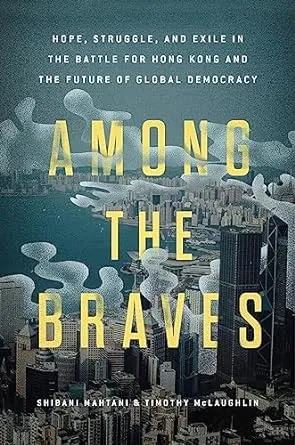
Among the Braves: Hope, Struggle, and Exile in the Battle for Hong Kong and the Future of Global Democracy by Shibani Mahtani and Timothy McLaughlin
When I first became aware of huge protests in Hong Kong, I only had the vaguest sense of the issues that galvanized people there. Having never lived there and not having any familial or personal ties, I did not know much about this and was admittedly paying more attention to other world events in 2020. So, I picked up this book and was absolutely absorbed by the personal stories that Mahtani and McLaughlin use to explain to outsiders like me what was going on in Hong Kong while they were there. This is an amazing book and an incredible reminder of why we need independent journalism and individual journalists willing to risk their lives to tell the rest of us what is happening in dangerous situations around the world.
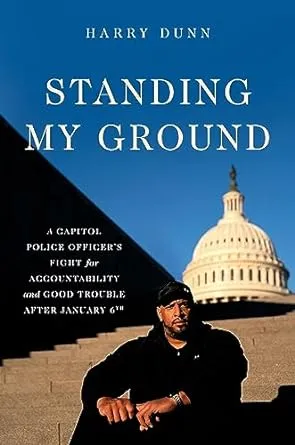
Standing My Ground: A Capitol Police Officer’s Fight for Accountability and Good Trouble After January 6th by Harry Dunn
I remember hearing about the January 6th attack on the US capitol in 2021 and having a very difficult time comprehending how such a thing was even possible. I knew there was domestic terrorism and white supremacy movements in the US, but I was still thoroughly shocked. I am also shocked that Dunn had to write this book, but yet he did. I wish he and his fellow officers could have experienced something very different on that day, but I appreciate that he and many others did the terrifying work of not only defending the capitol but, in Dunn’s case, also coming forward and writing this book about what happened.
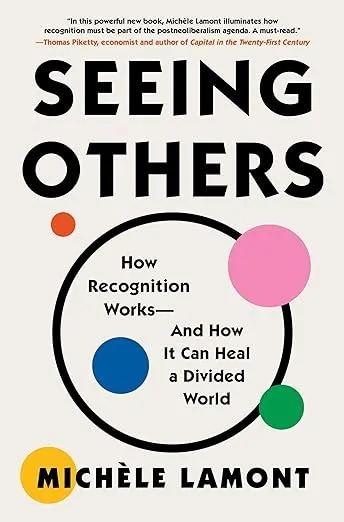
Seeing Others: How Recognition Works – and How It Can Heal a Divided World by Michèle Lamont
This is one of the books on this list by a sociologist, and it is another very thought-provoking read. Lamont argues that recognition is a neglected aspect of inequality among groups of people and that seeing others — while also recognizing them as valuable — is key to overcoming some of the internal divisions that seem to be rife in many societies today. I think it fits conceptually with some of what Reverend Liên Shutt discusses in Home is Here and serves as a good complement.
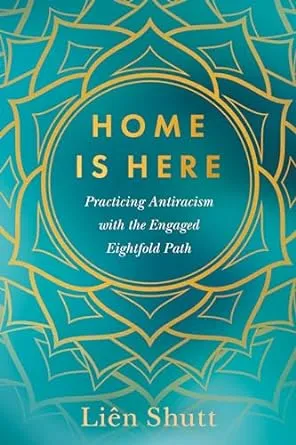
Home is Here: Practicing Antiracism with the Engaged Eightfold Path by Reverend Liên Shutt
This book strikes a needed balance between acknowledging what is wrong in human society and also making practical, considered suggestions about how to work toward correcting our collective harm and racism toward others. Reverend Shutt is an ordained Zen priest, a 1.5-generation Vietnamese American, and a lesbian. She draws from all of that background and more to provide guidance on how to establish more inclusive Buddhist communities in this book. However, I think this book is also a gift for anyone who wants to do this work in other non-religious settings, so I encourage you to pick up a copy and see what rings true for you, whether you are Buddhist or not.
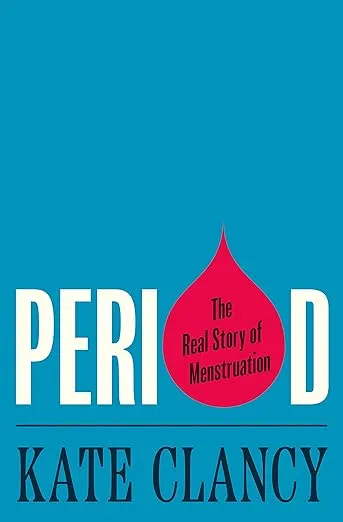
Period: The Real Story of Menstruation by Kate Clancy
I was already interested by the title of this one, but I was drawn in by Clancy’s introduction. Her vignette about noticing that one of her professors only had them read female anthropologists one week a semester and writing to him about it, only to have him read her comments aloud in class and laugh…Yes, that is why we need more women and more feminist perspectives in so many places in society. I do not mean that their mere presence is a panacea, but the exclusion and silencing of women and feminist perspectives is undoubtedly to everyone’s detriment. So much is lost. Read Clancy’s book to understand how her obsession with menstruation yielded new knowledge and insight into something that half the world does, but so few feel they can talk about.
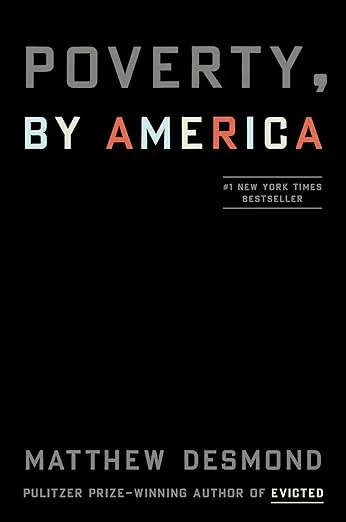
Poverty, by America by Matthew Desmond
If you haven’t read Desmond’s book Evicted: Poverty and Profit in the American City, then I am a bit torn over which to recommend first. Evicted is also groundbreaking and very moving, like his newest book. Perhaps the right thing is to just pick whichever speaks to you more strongly: housing and the struggle to stay among the housed or the factors that push people down to the lowest rungs of the economic ladder in the richest country on earth. Desmond deals with the latter in his newest title, and he does it in such a thoughtful and thorough way. It is no surprise that this was one of former president Barack Obama’s favorite reads of 2023 (another annual list I always enjoy perusing). I think this would be a rich and beneficial read, even for those who have never lived in the US and never intend to. Regardless, you’re probably aware that this is one of the richest countries on earth, and somehow, there is still a shocking amount of deep poverty. Read Desmond’s book to understand why.
That is my list of the best nonfiction of 2023. If you need more best 2023 nonfiction vicarious thrills, read these eight underrated nonfiction award winners or these microhistories. If you want to tackle more but want it aimed at more of a YA audience, try this essential YA nonfiction guide or 61 YA nonfiction books. With all these, I think you’re pretty well covered until at least 2050.









